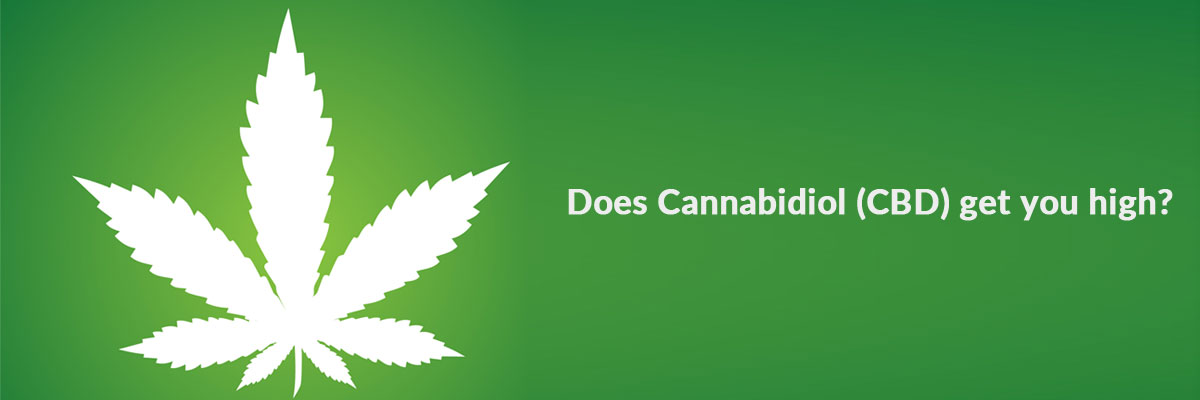A question which seems to be asked more frequently, as the benefits of Cannabidiol become known to more people. It’s an important question, especially for those patients and individuals who are looking for the desired beneficial effects of CBD, but are potentially dismayed by the stigma which surrounds the Marijuana and Hemp industries. The effects of CBD take place on a cellular level, and has generated a lot of interests in the medical community for its therapeutic properties. Until recently, the effects of CBD could only be experienced by consuming certain strands of the marijuana plant in its entirety. Which would obviously cause psychoactive effects, which may or may not be desired. The good news is, for those looking for the medical benefits can now experience the full benefits of CBD without having to experience the psychoactive effects of THC. TheExtract has the right information about it. New procedures in how Marijuana and Hemp plants are cultivated have allowed for Cannabidiol to be strategically extracted and concentrated in ways which make it easily ingested.
To understand why CBD doesn’t cause a high sensation we need to understand more about Cannabidiol.
Currently, there are 85+ Cannabinoids known to medical science, Cannabidiol being the compound prevalent in most CBD products. Cannabinoids are chemical compounds found throughout the cannabis plant which, when ingested or inhaled, can provide a range of beneficial treatments to an array of different symptoms and ailments. New research suggests that CBD benefits the body by, increasing blood flow and creating broad anti-inflammatory effects. Cannabinoids are able to provide these benefits by interacting with our brains endocannabinoid system, which is our vital molecular system for helping maintain healthy homeostasis. This communication between cannabinoids and our Endocannabinoid system helps our body remedy any deficiencies or fix potential issues in our body’s ability to maintain a healthy balance. In recent studies, CBD has been shown to enhance the action of cannabinoid receptors in the brain. This action is classified as an agonist, it might be easier to think of an agonist as a keys and our cannabinoid receptors as locks. By consuming cannabinoids, you are absorbing keys which interact with different locks on cells in the body. Individuals looking for alternative means of relief can find benefits for treating inflammation, pain, anxiety, psychosis, seizures, spasms, and nausea. Studies have also seen CBD’s potential benefits with cancer treatment, as cannabinoids are known to interfere with tumor neovascularization, cancer cell migration, adhesion, invasion and metastasization.
In order for CBD to have an effect on the human body, it first has to get into the cells. In order for CBD to work its medicinal magic, it has to pass through the cell membrane. It binds to FABP (fatty acid binding protein) allowing various lipid molecules into the interior of the cell. When this process has taken place, CBD then goes to work modulating receptors on the surface and inside the nucleus of the cell. Whilst CBD is inside the cell, CBD reduces anandamide’s (anandamide discussed further below) access to FABP transport molecules which delays endocannabinoid passage into the cell’s interior. CBD is seen to enhance endocannabinoid tendency, a neuroprotective effect against seizures. CBD also increases adenosine levels, especially A1A and A2A adenosine receptors, which are mainly responsible for cardiovascular function. Effecting A1A and A2A receptors helps regulate myocardial oxygen consumption and coronary blood flow. This research infers that CBD benefits the body by, increasing blood flow and creating broad anti-inflammatory effects.
So why doesn’t CBD get you high?
It really comes down to how it reacts to your CB1 receptors. Your CB1 receptors are located in your brain and throughout your central nervous system. To produce a psychoactive effect, like THC, it has to bind to your CB1 receptors to induce the desired effect. Simply put, CBD does not bind well with your CB1 receptors. A good analogy would be, in order to create that psychoactive effect, trying to screw in a flat headed screw with a Phillips head screwdriver. It simply doesn’t work. To create the psychoactive effect, you would need the right tool, or in this case molecules to create that effect. The THC molecule just fits perfectly and thus stimulates your CB1 receptors.
Interesting to note, CBD does not have the ability to mirror or impersonate anandamide. Anandamide is a neurotransmitter, the root of the word comes from the Sanskrit word anada, which means joy, bliss, delight, and amide. Not hard to understand that this mimicking of anandamide creates those signs of feeling high. Studies which utilize and research anandamide and its effects, confirm that when ingested, it can enhance pleasure associated with food consumption and the feeling can be associated with a runners high or a buzzing sensation. Because THC, to our body, look just like anandamide, it activates our CB1 receptors which creates the same effects as anandamide does naturally.
Conversely, CBD does not have the ability to mimic anandamide and does not fit with our CB1 receptors. CBD is considered an antagonist to our CB1 receptors, which basically means that it doesn’t directly communicate with our CB1 receptors or create that blissful feeling like THC. When combined together, which is what happens when someone smokes or ingests cannabis. CBD acts in a way which minimizes or mutes the psychoactive effects of THC. In fact, cannabis which have higher amounts of CBD in them, creates a much calmer balanced high and actually mitigates some of those negative effects of THC, like nervousness and paranoia. This differentiation is very important, as many of the CBD benefits people could be taking advantage of are being avoided completely, due to the fact that CBD continues to be negatively associated by some with the “stoner industry”. Though it is part of the Cannabis and Hemp plant, when separated and condensed professionally can create an abundance of medical benefits.
Are there any negative side effects?
From personal testimony and some preliminary research on humans and mice, you can expect to see some overall improvements to your well-being, immune system, nervous system, inflammatory response, added sleep benefits, and provide significant antioxidant support. According to The National Cancer Institute, “Because cannabinoid receptors, unlike opioid receptors, are not located in the brain stem areas controlling respiration, lethal overdoses from Cannabis and cannabinoids do not occur.” Yet, we recommend that you check with a medical professional to insure safety with other medications you might be taking, and of course see how CBD affects you so you can safely incorporate into your health regiment.
CBD Oil
CBD oil is now being linked as a possible protectorate against neurodegenerative diseases. High quality CBD oil exert antioxidant effects minimizing the effects of free radicals or oxidative stress in our body. Through CBD oil’s high concentration of cannabidiol, it has the potential to neutralize the effects of free radicals in our cells. As you may know, free radicals have been seen in multiple medical journals to be the cause for numerous neurological diseases like: Alzheimer’s disease, ALS, and Parkinson’s disease. Oxidative stress has also been linked to chronic fatigue syndrome, atherosclerosis, heart failure, inflammatory diseases and cancer. If you suffer from any of these disorders or experience any of the symptoms, incorporating CBD oil or CBD related products in your daily routine may drastically improve your quality of life. Browse Japa Organics that bring the best sourced premium CBD Oil to the public.
http://www.cannabis-med.org/studies/ww_en_db_study_show.php?s_id=173&&search_pattern=EPILEPSY
https://jeccr.biomedcentral.com/articles/10.1186/1756-9966-27-69
https://www.ncbi.nlm.nih.gov/pubmed/22625422
http://www.eurekaselect.com/75752/article
http://www.cannabisinternational.org/info/Cannabinoids-Review.pdf




